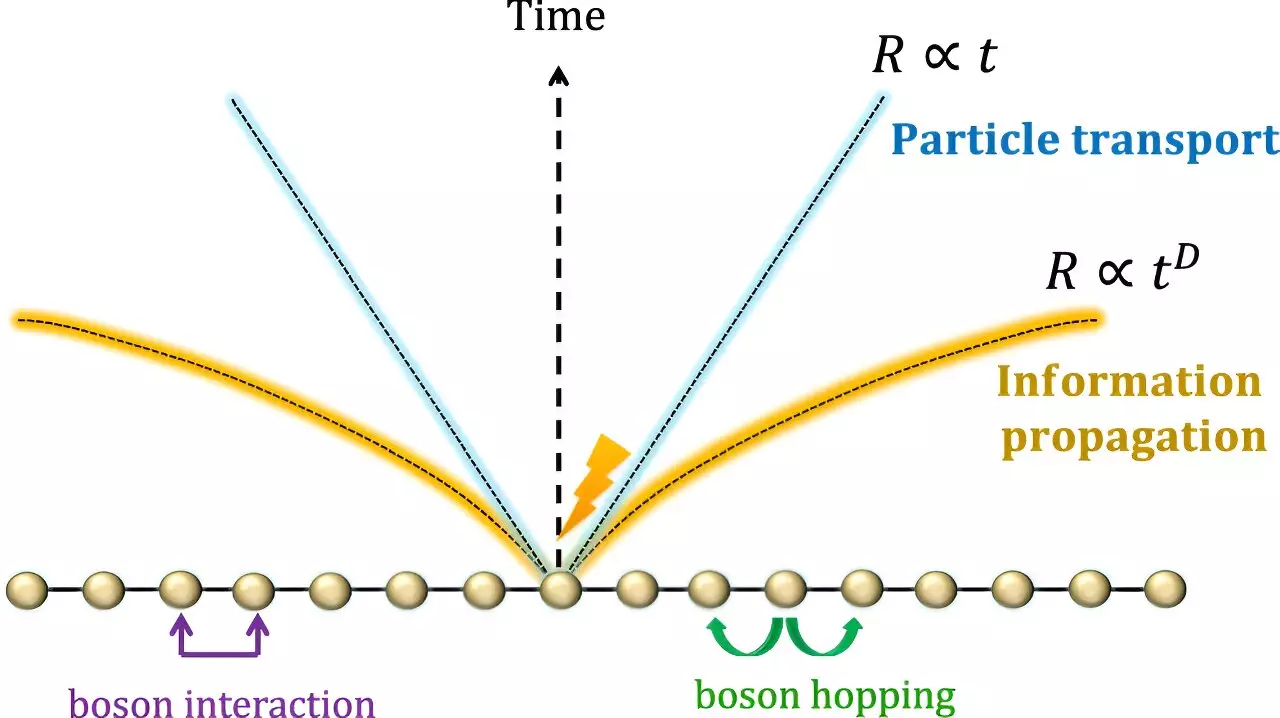Quantum many-body systems, particularly interacting boson systems like Bose-Einstein condensates (BECs), play a significant role in various branches of physics. These systems are essential for studying the propagation of quantum information and changes within them. The Lieb-Robinson bound, which governs the speed at which information propagates through a quantum system, has long been a challenge for interacting boson systems. Dr. Tomotaka Kuwahara and his team at the RIKEN Center for Quantum Computing delve into this challenge in their recent study published in Nature Communications.
The Lieb-Robinson bound sets a universal speed limit on how quickly correlations or influences can spread between spatially separated regions of a quantum system. This limitation is akin to the concept of a light cone in Einstein’s theory of relativity, signifying the boundaries within which information can propagate. In the context of interacting boson systems, this bound presents a unique challenge due to the unbounded energy and long-range interactions among bosons.
To tackle the complexities of interacting boson systems, researchers often turn to theoretical models like the Bose-Hubbard model. This model considers the hopping of bosons between lattice sites and the on-site interactions that occur when multiple bosons occupy the same site. By incorporating these factors, researchers can study the behavior of bosonic systems within a confined lattice structure, such as atoms in a crystal.
In their investigation of the Lieb-Robinson bound for a D-dimensional lattice governed by the Bose-Hubbard model, the researchers uncovered several key results. One crucial finding was the limitation on the speed of boson transport, even in systems with long-range interactions. This limited speed grows logarithmically with time, providing valuable insights into the dynamics of boson systems.
Operator Propagation and Error Accumulation
Operators in a quantum system, like momentum or other variables, play a vital role in determining the propagation of information. As these operators evolve over time, they may deviate from the ideal evolution, leading to error accumulation. The rate of error propagation influences how quickly information can spread in the system, with larger errors indicating slower propagation and smaller errors signifying faster transmission.
Clustering and Accelerated Propagation
Despite the presence of an upper bound on error propagation, interactions among bosons can induce clustering in specific regions, facilitating accelerated information propagation along certain lattice paths. This phenomenon aligns with the Lieb-Robinson bound, highlighting the bounded acceleration of information propagation depending on the dimensionality of the system.
Unlike fermionic systems, which exhibit a finite speed limit for information propagation, bosonic systems display a non-linear light cone that spreads out more rapidly over time. Dr. Kuwahara underscores that bosons can send information faster than fermions due to the cooperative behavior of multiple bosons in the same state. This work sheds light on the accelerated transmission of quantum information within interacting boson systems.
The findings of this study open up new avenues for exploring interacting boson systems and their applications in condensed matter physics. By simulating the time evolution of bosonic systems using elementary quantum gates, researchers can gain valuable insights into quantum thermalization and the behavior of closed quantum systems over time. Dr. Kuwahara envisions the algorithm developed in this study being pivotal in discovering new quantum phases and advancing our understanding of quantum systems.


Leave a Reply